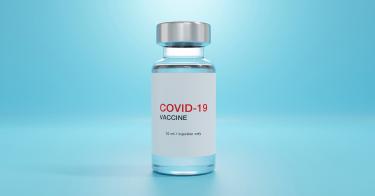Among the glut of pork and woke spending loaded into the lame-duck omnibus spending bill, you’ll find $1.5 billion in taxpayer funding for something called the Advanced Research Projects Agency—Health (ARPA-H).
You’ve probably never heard of ARPA-H because it didn’t exist before March of this year. But this obscure agency cannot be ignored because if it is supercharged with new powers under the omnibus bill, it may have deadly consequences for public health.
By statute, ARPA-H’s mission includes “promot[ing] high-risk, high-reward innovation for the development and translation of transformative health technologies” by “supporting … acceleration of transformational health technological advances in areas with limited technical certainty.”
Most competent health authorities will agree that the words “high risk” and “limited technical certainty” should never be considered positive features when discussing public health, but ARPA-H embraces them with gusto. It is precisely this sort of reckless thinking that got us into funding “gain of function” type experiments with deadly viruses, including, it appears, high-risk research that may have led to the creation and escape of the COVID-19 virus at the National Institutes of Health-supported Wuhan Institute of Virology.
Under the omnibus bill, ARPA-H will be plucked out of the National Institutes of Health, where it currently resides, and established as “an independent operating division within the Department of Health and Human Services.”
This is clearly meant to make ARPA-H operate outside the purview of HHS’ other operating divisions, including the NIH, the Centers for Disease Control and Prevention, the Food and Drug Administration, the Indian Health Service, and the Centers for Medicare and Medicaid Services.
All in all, ARPA-H is designed to sidestep over a dozen different agencies and almost 100,000 scientists, researchers, nurses, pharmacists, physicians, and support staff. ARPA-H is purposely hostile to existing structures, so much so that the omnibus all but bars it from hiring future staff from the NIH.
Additionally, the ARPA-H director will have a four-year, renewable, term of office and, in a move of dubious constitutionality, would be insulated from any requirement to submit “for approval or review” any personal recommendations to Congress regarding ARPA-H’s activities, whether or not they conflict with presidential policies.
But to what end is all this independence?
It is to empower ARPA-H to mimic Silicon Valley “disruptors” and jam its risky ventures through or around existing public health safety structures. The bill sets up an advisory committee that includes the FDA, the CDC, the NIH, and others, but clarifies that the committee will have no authority whatsoever over ARPA-H’s activities.
Although the bill grants the FDA, America’s premier agency in charge of drug approval and medical device safety, the ability to meet separately with ARPA-H, it specifies that it must be only to discuss “actions that may be taken to facilitate the development, of medical products and projects that are the highest priorities to ARPA-H.”
If that isn’t enough pressure on the FDA to do ARPA-H’s bidding, the bill would further require ARPA-H to “reimburse” the FDA for any activities it conducts as a result of these prioritization meetings. In short, the FDA is expected to regularly meet with ARPA-H to get its marching orders and then get paid every time it completes them.
This structure so erodes the independence of the FDA as to be laughable if it weren’t so dangerous.
As extensively catalogued by our Ethics and Public Policy Center colleague, Aaron Kheriaty, public health authorities shamefully lowered standards and hid relevant safety information for the sake of political expediency when it came to the COVID-19 vaccines, and the last thing we should do is make such cutting of corners a permanent feature of our public health apparatus.
One can only imagine the deadly dangers to be unleashed when an ARPA-H director pushes for “high-risk” approvals of drugs or vaccines in an environment of “limited technical certainty” such as during a pandemic. Moreover, if Congress approves the omnibus bill, ARPA-H will have a $1.5 billion budget to play with as a nonemergency baseline.
Yes, the FDA can and should improve its drug safety record and its speed of approvals. But injecting ARPA-H’s gotta-break-some-eggs-to-make-an-omelet ethos into the mix is not a solution but a recipe for disaster, much like the rest of the omnibus bill.
This piece originally appeared in The Daily Signal on December 21, 2022




